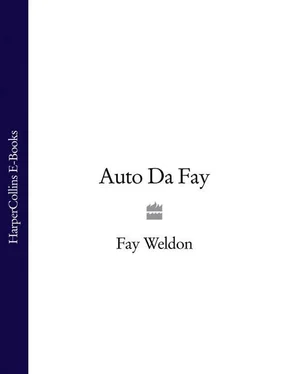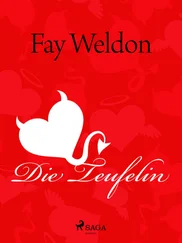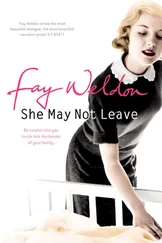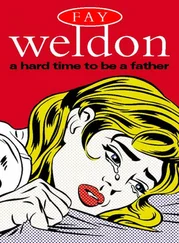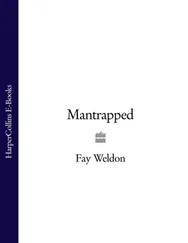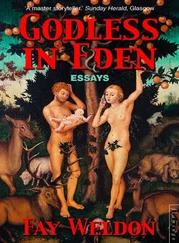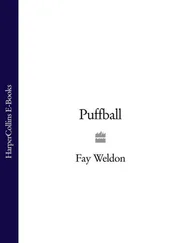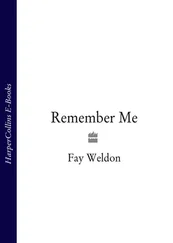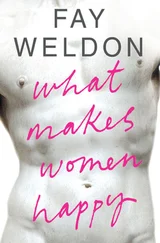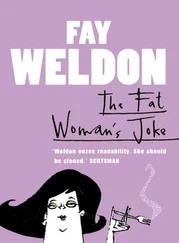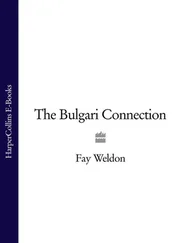I was frightened, he knew I was frightened, why did he want to make it worse? Even today I still get panicky when driven through even the shallowest ford in the soft English countryside. ‘Can’t we go the long way round?’ I plead, but we never can. My experience of men in cars has always been that if you don’t want them to do something, they will. It is when they are behind a wheel that they most fear the control of women and children.
I remember my mother turning cartwheels on the lawn, white legs flashing, short skirt whirling, and being overwhelmed with admiration. None of my friends’ mothers turned cartwheels. They wore pinnies and made apple pies. We were different. I became aware that we were homies. We came from a far-off place called England, and didn’t really belong here. This made you both better and worse, before you even began. Sometimes people didn’t even understand what you said. Then you felt stupid. You wanted to speak like your friends, but your mother wanted you to speak as she did and was quite cross when you didn’t. You wanted to say ‘yiss’ but she wanted you to say ‘yes’. So you learned to speak two different languages, one for home, and the other for your friends. The picture books came from England, though, and showed children and their parents who were more like you than the other families around. You could read the stories to your friends and they liked that. People were like the pages of books. There were more and more of them, a page behind every page, and everyone with something new to say, and you never wanted it to stop.
In retrospect it is clear that my father took to life in the outback with enthusiasm, my mother decidedly less so. She had escaped the emotional stress of her family circumstances but at some cost, though at least there weren’t any earthquakes down here in the South. The earth stayed steady beneath her feet and my father and she did indeed have a radio station to play with, or at least several hours’ a week broadcasting time. My mother wrote radio plays, and even in these benighted parts found people enough to perform them, and an appreciative audience, and made friends: my father lectured on socialism and lost quite a few. New Zealand was an advanced country in social terms – first in the world with votes for women, first with an embryo national health service – and always, like my father, hungry for improvement, but actual socialism was viewed askance, particularly in rural areas.
My father was tireless and energetic: he wrote a detective serial for the local newspaper which went on for more than a hundred episodes. He wanted to stop but he couldn’t because he didn’t know who had done the murder. He was like a hotel guest who wants to leave but can’t because he has no money to pay the bill. The longer he stays the worse things get. In the end my father offered a five-pound prize for anyone who could solve the puzzle, and someone turned up who did. There is always a reader out there who knows better than the writer, and just as well.
In my father’s footsteps, I wrote a serial for a woman’s magazine in the Eighties: The Hearts and Lives of Men. It was meant to go on for twelve episodes but ran for forty-nine before the editor called enough, other writers wanted their space on the page back. I was happy to finish: I had already had to divorce and remarry my hero and heroine once so that the eventual ending would stay feasible. To do it again would be absurd. The serial was about a lost child, little Nell, who must in the end be reunited with her parents and bring them to their senses.
This endeavour went on for nearly a year. A courier would call at the door at one o’clock every Thursday to collect the latest instalment, which I had most likely written on the train that morning. In those days I lived in Somerset but had an office in London. I marvelled at how trusting the editor was: had there been a train strike, had I been ill, he would not have been able to collect his instalment. I think he had a vague idea that the story was already written and all I was doing was cutting it up into bits and handing it to him section by section, out of meanness. Even editors don’t seem to understand the make-it-up-as-you-go-along school of writing which I inhabit. But I am responsible in my own way: I couldn’t be ill or have a holiday for forty-nine weeks, and I wasn’t and didn’t. The episodes, restructured, were eventually published in novel form, and when it was I was quite pleased with it, though I missed the ‘story so far’ sections, which I had loved writing. As you move through a story it is interesting to see how your own view of it changes, and how you see fit to describe those who inhabit it. But the central premise of the story held, that like calls to like and most of us are given second chances, and that virtue is more often rewarded than we think.
New Zealand, for my father, was a second chance, and perhaps that was why he took to the new land with such joyful ease. Its very air suited him. He had contracted rheumatic fever in the trenches of World War I and nearly died from it. The smogs and fogs of London were no good for him. He had run away from home in 1914 to join the army, in response to Lord Kitchener’s pointing finger and ‘Your country needs you!’ He was sixteen but pretended to be eighteen. In those days it was possible to lie about your age: now we are all so closely monitored and registered it is near-impossible. Life is much duller as a consequence. One’s instinct is to hide from the state. I was always taken aback by the way schools asked to see my children’s birth certificates – supposing there was something there that I wanted them not to know? What business of theirs was my offspring’s parentage? Bad enough that school was compulsory – one could overlook that, because the children evidently so badly wanted to go – but what did they hope to find out? And where was I meant to find these bits of paper anyway, four or five years after the birth? As it happened I managed on all four occasions to fail to provide the required documentation, and no one ever followed up the initial request, but just assumed the children had the names and ages they said they had.
My father came from yeoman stock: his mother Isabel was a Garbutt, from a family who had farmed sheep in Northumbria for generations. His father Herbert was a Henderson on his mother’s side: the family had been ‘in wool’ for as long as anyone could remember, but had diversified into carpets, and were ‘in trade’ which was not quite the thing. The Garbutts, who now included bishops among their ranks, saw Isabel as a cut above Herbert. He was spoken of as a bully, and Isabel as a saint for putting up with him. And she was indeed the sweetest, gentlest thing. My half-sister Barbara takes after her, and her daughter Naomi, though sweetness seems to have by-passed the rest of us, become too diluted in the genes. On the one occasion I met Herbert, in 1946, he seemed perfectly pleasant and gave me half-a-crown so I will not add to the slurs.
But he did seem to be anxious that his four children would not succeed, and almost to spite him, they all did. He took Frank away from St Edward’s Grammar School in Birmingham and apprenticed him to an engineer, when that was what he specifically didn’t want to be. Sheona, the oldest, was given away in infancy to be brought up by an aunt, and grew up to marry her cousin, an eye surgeon, and to became a poet. For fifty years, until her death in her late Nineties, a poem by Sheona Lodge, delicate and lyrical, appeared regularly in the American Fly Fisher’s Journal. The second daughter, Mary, was active in politics, married Michael Stewart, later to be Foreign Secretary in Harold Wilson’s government, and both ended up on the Labour benches in the House of Lords. Bill became a much respected dentist in the Midlands: once mysteriously married to someone who ‘ran off’, and whose name he would not have mentioned in the house. That was not so unusual a response at the time; the world was full of things too painful to be mentioned, because there was nothing to be done about them. Infidelity, illegitimate children, insanity, cancer – it seemed impolite to God to mention them, pointing the finger because he had failed to make a perfect universe. As cures became available, of course, one by one, they could be talked about, and now are, almost to exhaustion, as if we are making up for lost time.
Читать дальше
